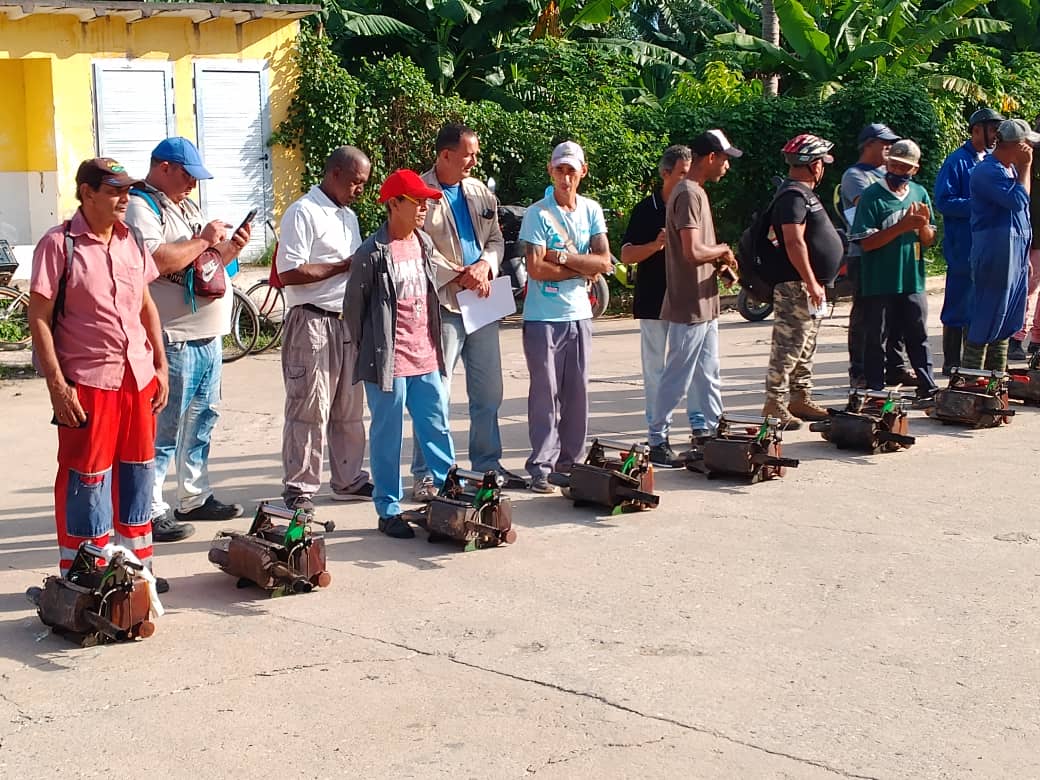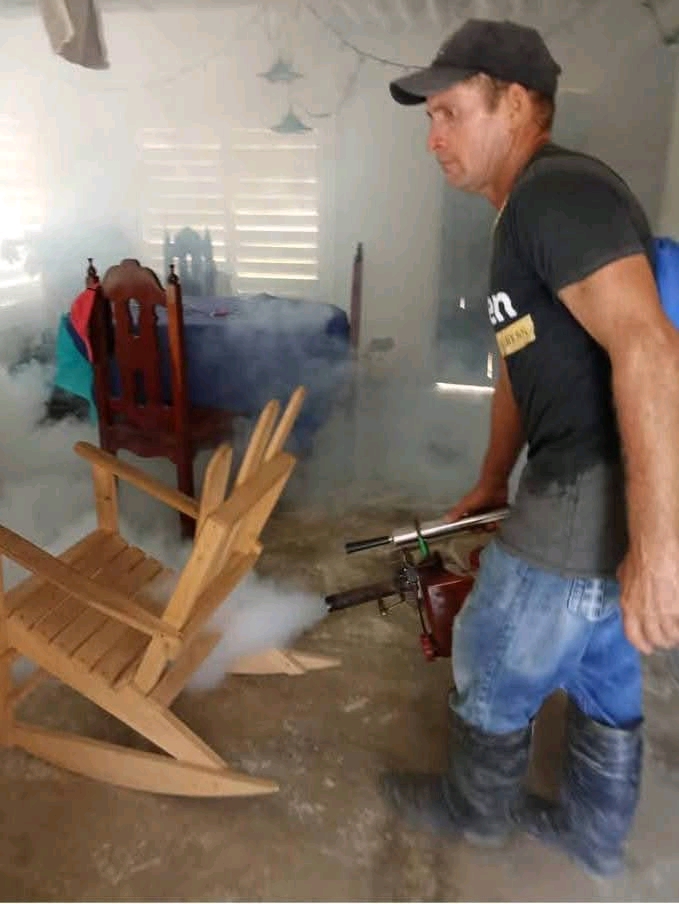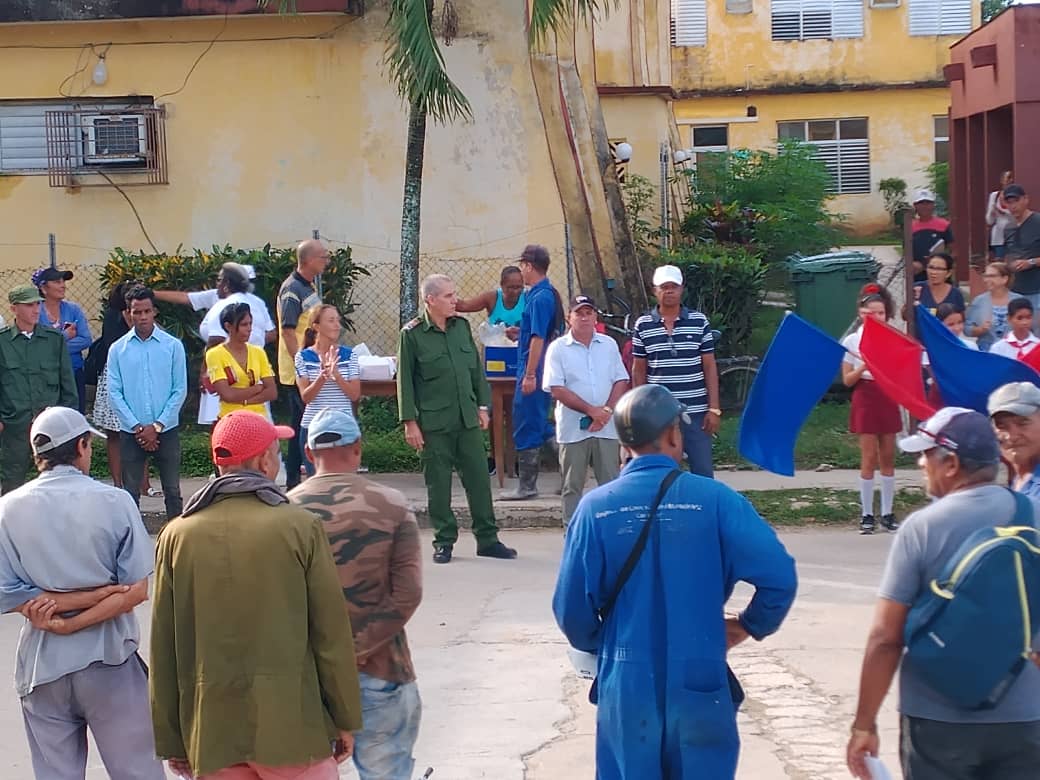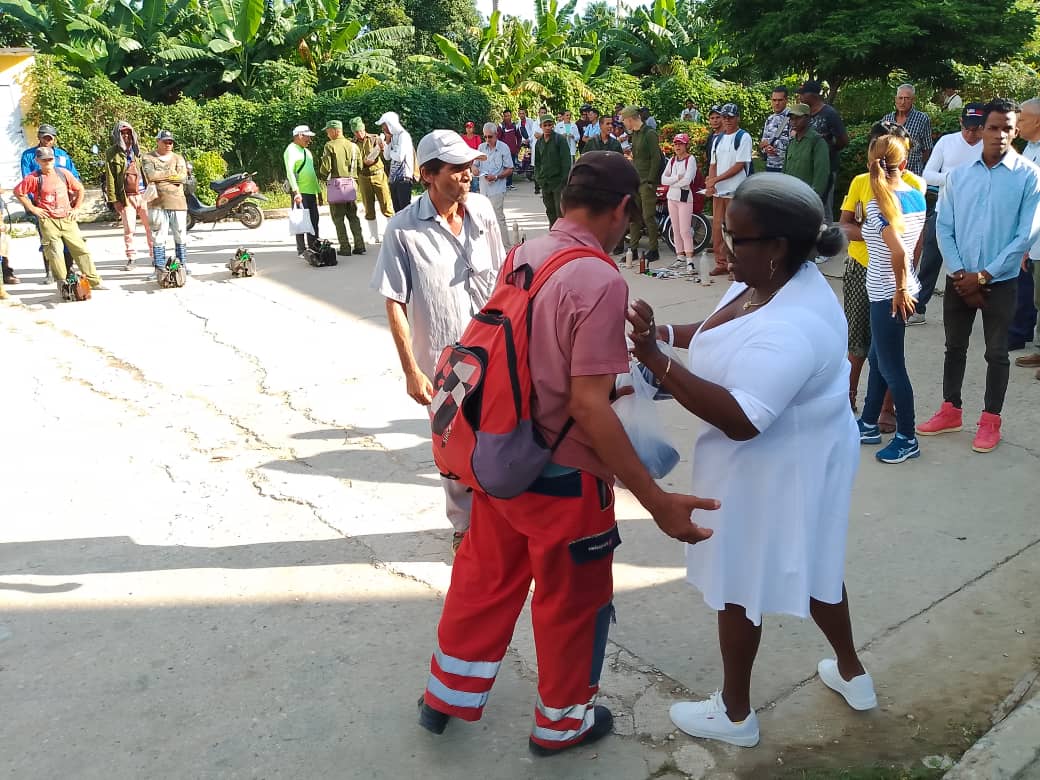
Camagüey, Nov 24.- The dawn in Camagüey has not yet completely dispelled the gloom, but the vector control workers from the Joaquín de Agüero y Agüero Polyclinic are already beginning their daily ritual. With fumigation backpacks and an unwavering commitment, they disperse throughout the neighborhoods.
They are the first line of defense, the silent guardians whose mission is to contain the tiny but dangerous enemy: the Aedes aegypti mosquito. Their labor, meticulous and constant, is a chemical shield that protects the community from the threats of dengue and other arboviruses.
The characteristic sound of the fumigation backpack motor announces their presence on every street, at every doorway. The insecticide, turned into a dense white cloud, slips into homes with prior permission, seeking out the corners where the adult insect may reside.

This dance between smoke and health is not a mere formality; it is a fundamental barrier to cutting the chain of disease transmission. Every living room, every fumigated patio, is a small territory won in this relentless war for the well-being of Camagüey's families.
However, their fight is not limited solely to the use of chemicals. Prevention is their most effective tool. As they advance, they share information about mosquito breeding sites that can form in places like poorly covered water tanks, abandoned tires, or plant saucers with accumulated water. In this way, they empower every citizen to become a guardian of their own home.

This work of education and fumigation is a pillar of the Cuban community medicine model. The workers integrated into the polyclinic are not outsiders to the neighborhood; they are neighbors protecting their own. Their work, although sometimes scarcely visible or even misunderstood by some, is public health in action. It represents the idea that preserving health is a collective task, where vector control discipline and individual responsibility must go hand in hand to achieve a safe environment.

At nightfall, when they return to the polyclinic, there are no medals or ostentatious recognition. Their greatest trophy is the tranquility of a more protected community. They are men and women who, with their daily effort, write a chronicle of dedication in the streets of Camagüey.
Their story is one of a persistent battle, drop by drop of insecticide and word by word of prevention, so that the buzz of the Aedes aegypti does not turn into a lament in the homes of the city. (Maykel Torres La Rosa/Radio Cadena Agramonte) (Photos: Courtesy of Ananciby Jarp García/Specialist from the Camagüey Prosalud Health Promotion and Disease Prevention Unit)